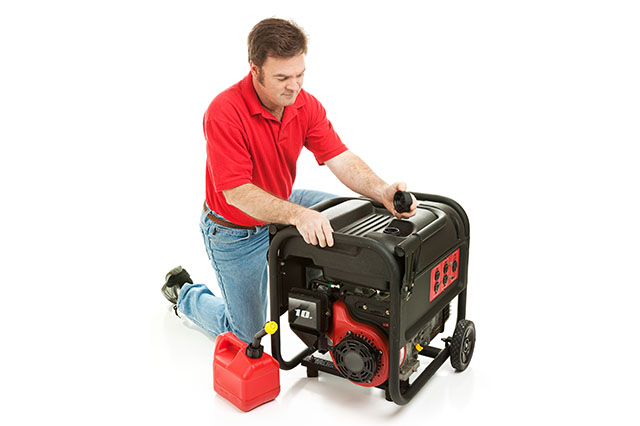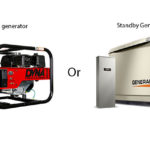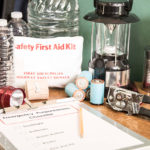7 Generator Safety Practices That Will Protect You and Your Family During Emergencies
In Florida, we are no strangers to hurricanes. Every year, as we say goodbye to the summer, our dear Atlantic starts pulling tricks on Floridians. While there are many mild tropical storms, some can be tough, and leave you isolated for days. Hurricane season power outages are the main reason you should have a power generator at home. But it’s important to know how to use yours safely.
While a necessity during emergencies, it’s important to remember that generators produce a lot of carbon monoxide. A conventional generator can produce as much carbon monoxide as one hundred idling cars. Plus, it’s an entirely odorless, colorless and tasteless gas, so there’s no way to know if there’s too much of it going around. It’s a good idea to have a carbon monoxide detector at home!
While this amount of gas sounds scary, generators are still home appliances, and it only takes a few precautions to use them safely. Here are the primary safety practices when handling a generator:
1. Keep it outside
The amount of deadly gas a generator produces means it cannot be indoors. Running one inside a shed or a garage is the top reason of generator-related carbon monoxide poisoning. Even partially enclosed spaces leave too much gas in, ultimately capturing dangerous levels.
Picking a safe location is critical. You should always place a generator at least 20 feet away from your home, particularly sides with doors and windows. Use a carbon monoxide detector when handling your generator to be on the safe side.
2. Guard it against the elements
This tip might seem contradictory given the previous one, but you can find plenty of options. Hardware stores and home centers are great places to see a sturdy tent that will keep your generator safe from rain while also ventilating it properly. You don’t want your generator directly out in the rain during a hurricane.
3. Check your setup ahead
Generators exist for times of emergency, but you should always check everything before the actual hurricane hits. Turn it on and give it a try, carbon monoxide detector in hand. Check that your extension cord is the right type and length, as to avoid having to place the generator closer than it should be.
4. Get maintenance
Unless you live in a disaster zone, you’ll use your generator reasonably infrequently – and disuse can lead to issues. If you use it frequently, that’s all the more reason to perform regular maintenance.
First of all, you should check your monoxide carbon detectors periodically. To that checkup, add a general check-up once or twice a year, preferably when hurricane season is approaching.
It’s worth noting that, when incorrectly installed, generators can produce backfeed. If you can get a professional to handle maintenance, that’d be ideal. If not, it’s important to remember to keep a permanent generator connected through a transfer switch, and not directly to your home’s wiring or an outdoor outlet.
Portable generators also shouldn’t be connected to your house’s wire system, but rather to an extension cord to whatever you need to power.
5. Do not backfeed
In times of emergency, you could be tempted to try to power your home’s wiring by plugging your generator into a wall outlet. Do not do this! This practice, called backfeeding, could easily lead to frying your electronics and even starting an electrical fire.
It’s also a risk for everyone around you, as utility workers and neighbors using the same utility transformer could also reap the consequences. That’s a lot of people in danger!
6. Refuel calmly
Times of emergency can make everyone nervous, but you need to keep your cool – and so does your gasoline-powered generator. When it’s time to refuel, you need to do it step by step. First, turn it off and let it cool for a while. It’s extremely dangerous to refuel a running generator, as it can lead to burns due to spilling, or hot engine parts igniting.
7. Store fuel properly
When stocking up for a tropical storm, you’ll need to have extra fuel around in case you’re out of power for days. You should store your gasoline in a fresh and well-ventilated place, in an ANSI-approved container.
Your gasoline container must be far from sources of heat, fire, and electricity. There shouldn’t be any flammable materials around gasoline. Lastly, you shouldn’t store fuel inside the house.
EmPower Generators has been providing alternative energy solutions to Floridians for nearly 20 years. We are committed to providing the best service, while always keeping the safety of our customers in mind. Contact us today to find out more about the best generator for your needs.






